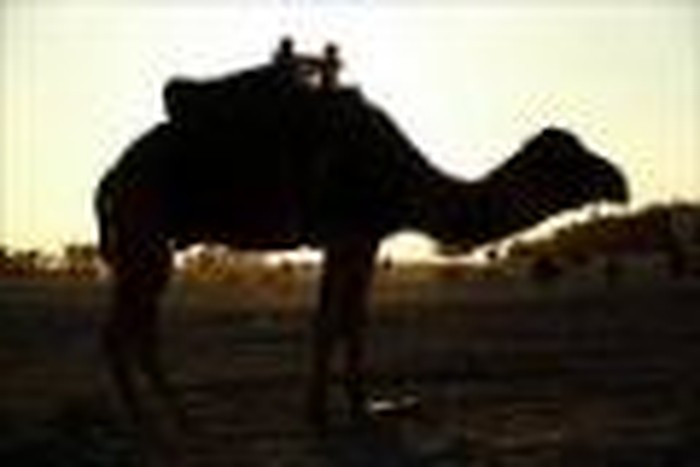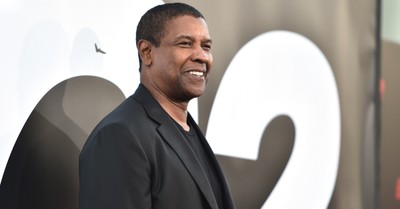Arabs Take Epic Sahara Camel Trek to Spread Gospel
- Erich Bridges Baptist Press
- Published Oct 13, 2006

NORTHERN AFRICA -- How’s this for a mission trip: Three months on camels in the scorching Sahara. No contact with family members. Beaten with metal rods. Kidnapped by renegade soldiers.
All to bring Jesus to isolated oasis camps inhabited by nomads - hostile strangers who might not give you water during your journey, much less listen to your message.
That’s what some new Arab believers did earlier this year. They intend to do it again next year - and the year after that. Why? Because they read the New Testament.
“It was the Holy Spirit,” says Luke*, the Southern Baptist worker who introduced the Arabs to stories from God’s Word.
“From the beginning, we told them, ‘As soon as you know the stories, you need to be sharing them.’ That was on their heart, and the Book of Acts had just come out in their dialect of Arabic. They began going through it and wanted to be like [the Apostle] Paul. They saw that Paul went out to other places.”
It all started about six years ago, when Luke and his wife went to a part of northern Africa to serve an Arab Muslim people group of about 1.5 million people. When they arrived, there were fewer than 10 known followers of Christ among the entire group. As he shared his life and the love of Christ in villages and nomad camps, Luke began making friends and showing the “JESUS” film. Some local men saw it and asked if Luke had something else to watch.
“At the time the only other thing I had on video was The Ten Commandments with Charlton Heston, in French,” Luke recalls with a laugh. “But they watched it, and at the end 10 guys came up and said, ‘We like this. We didn’t really understand it because it’s in French, but can we study the books of Moses?’ We started with Moses, went back to Genesis and up to Jesus. From that group, just one guy believed, but he has become the main evangelist.”
That young Arab believer and evangelist, Shama*, began telling Bible stories and gathering other new believers into groups. Later, they came to Luke and said, “We need our wives and our sisters to know about this. Can your wife come out and story with the women?”
Over the next several years Shama’s original handful of believers expanded to nine worship groups. As they listened to Luke’s teaching about church planting - and read in Scripture about God’s work in the early church - they conceived a grand plan to take the Gospel far into the desert.
“We didn’t tell them specifically how to do it, but about a year ago, they said, ‘We really feel like God wants us to go to another people group,’” Luke recounts. “They prayed and prayed about where they should go, and they felt led to go to a people out in the Sahara.”
The nomadic Muslim people group they selected was non-Arab, from a different tribe, notoriously fierce - and not especially friendly to outsiders. Even the women of the group were said to carry knives and guns.
The Arab believers found the few known Christians among the nomadic people and asked for tips on places to go and places to avoid. The worship groups contributed to the upcoming trip as they were able: eight camels, horses, tea, grain, cooking oil. They gathered stacks of Gospel cassettes and “JESUS” videos dubbed into the recently translated language of the nomadic people. Team members memorized key Bible stories to tell and compiled calendars with specific prayer requests for each day of their anticipated 90-day desert trek.
Ready at last, the mission team, led by Shama, departed on a grueling 17-day journey to their first destination - an oasis camp deep in the Sahara.
No one at home heard from them for the next three months.
Political chaos was roiling the region, increasing the worries of family members. They also knew their loved ones in the desert were traveling through hostile areas without enough food and water for the journey. Arab tradition commands hospitality to strangers, but the nomads the team members were seeking weren’t Arabs.
“It was hard not knowing,” Luke says of the long silence. “One of the down sides of the trip was that most of those who went were the major leaders among the believers. While they were gone, their wives and families had some really tough times. That was the hardest thing for us, to go and minister to some of the wives and kids that were left behind, because the church had stretched so much to send them on the trip that they really didn’t have much left to help the families that were behind.”
But they made do, and God provided. The wife of one of the volunteers gave birth while he was gone. Relatives gathered around her until his return.
On the camel trek, meanwhile, the mission team encountered a rude welcome in some of the nomad camps. In one location, Shama had hardly begun teaching when he was accused by local Muslim teachers of being in league with those who defame the Prophet Muhammad. Shama insisted he was proclaiming Jesus only, but they beat him with metal rods and stabbed him in the leg. Fellow team members rescued him and sewed his knife wound closed with horse hair.
At another point on the journey, three of the believers were riding to a nomad camp when they were “drafted” by renegade troops, who forced them at gunpoint to don military uniforms. The troops killed their camel for food, but the believers escaped that night and made it back to their team’s camp.
They also found “persons of peace” along the way who helped and fed them. And in at least 10 nomad camps, they found people with open hearts and ears. They gave away all their Gospel cassettes and videos. In the days and months since their return, some of their nomadic listeners in the deep Sahara have believed in Jesus and been baptized.
“The trip was very difficult, as we expected it would be,” Luke says. “But they testify that God cared for them along the way and that their faith has grown.”
They even gave each other Bible names on the journey - names like Peter and Paul. And like Paul, they’re already planning their next missionary journey - just like in the Book of Acts.
* Name changed for security reasons.
Erich Bridges is a senior writer with the Southern Baptist International Mission Board.
Copyright © 2001 - 2006 Southern Baptist Convention, Baptist Press



















